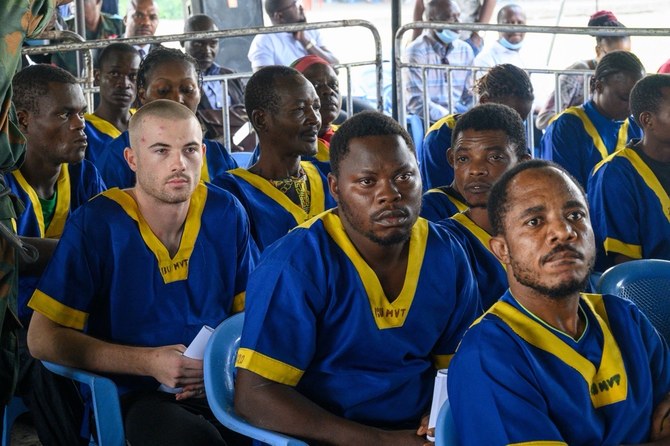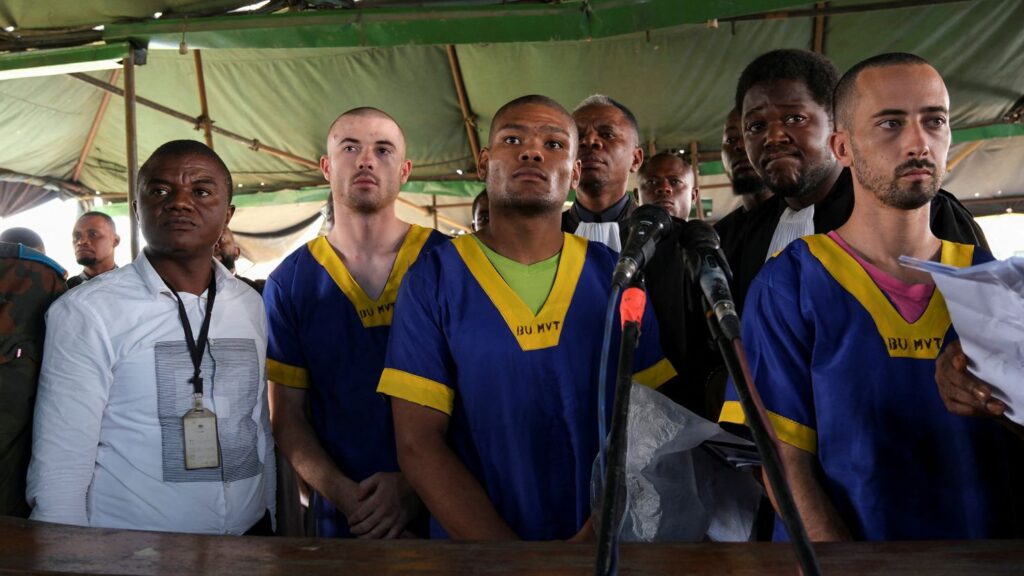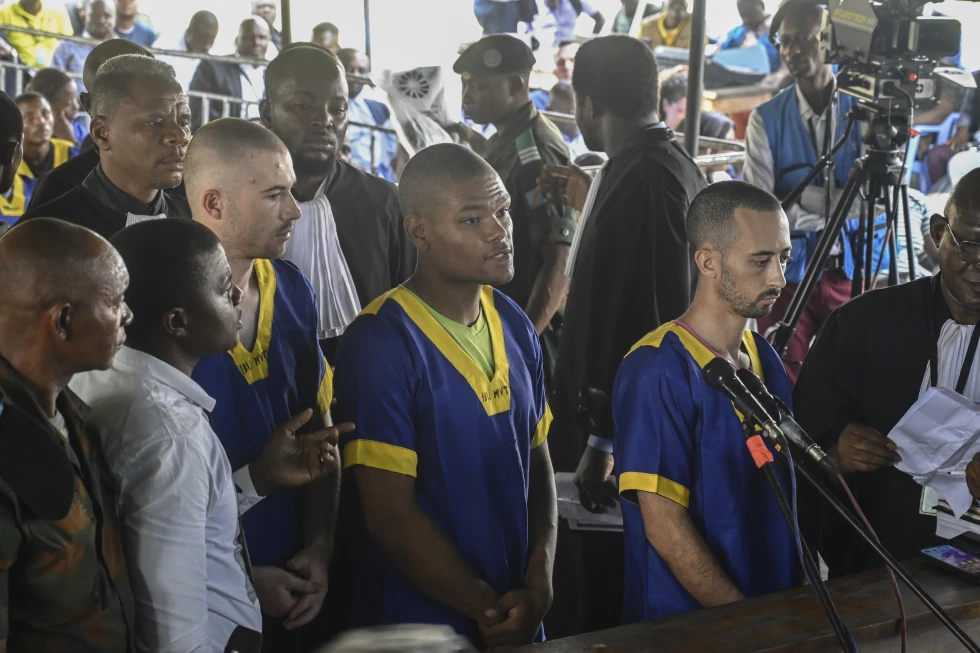KINSHASA, Democratic Republic of Congo – Congolese military prosecutors have called for the death penalty for 50 individuals, including three American citizens, accused of participating in an alleged coup attempt earlier this year. The prosecution’s demands came during a trial that has drawn international attention and raised concerns about the application of capital punishment in the Democratic Republic of Congo.

Lieutenant Colonel Innocent Radjabu, the military prosecutor, urged judges to impose death sentences on all defendants except one, who was cited as suffering from “psychological problems.” The trial, which began in June, involves charges including terrorism, murder, and criminal association, many of which carry the death penalty under Congolese law.
The case stems from a failed coup attempt in May, allegedly led by Christian Malanga, a little-known opposition figure. According to the Congolese army, the attack targeted the presidential palace and a close ally of President Felix Tshisekedi, resulting in six deaths. Malanga was reportedly killed while resisting arrest after live-streaming the attack on social media.

Among the defendants are three U.S. citizens:
1. Marcel Malanga, 21, son of Christian Malanga. His mother, Brittney Sawyer, maintains his innocence, stating he merely followed his father, who considered himself president of a shadow government in exile.
2. Tyler Thompson Jr., 21, from Utah. His family claims he traveled to Africa with Marcel Malanga believing it was a vacation, unaware of any political intentions.
3. Benjamin Reuben Zalman-Polun, 36, reportedly connected to Christian Malanga through a gold mining venture in Mozambique.
The involvement of American citizens has added a layer of international complexity to the case. Families of the accused have pleaded their innocence, with Thompson’s relatives asserting he had no knowledge of Malanga’s plans and never intended to enter Congo.
The trial has drawn attention to Congo’s recent reinstatement of the death penalty, lifting a moratorium that had been in place for over two decades. This move, authorities claim, is part of efforts to curb violence and militant attacks in the country.

The prosecution’s call for capital punishment has raised concerns among human rights organizations and international observers. Critics argue that the death penalty is an extreme measure, especially in a case involving foreign nationals and allegations of political conspiracy.
As the trial continues, it highlights the volatile political situation in Congo and the challenges facing President Tshisekedi’s government. The case also underscores the potential risks for foreigners becoming entangled in the complex political landscape of the Democratic Republic of Congo.
The international community, particularly the United States, is closely monitoring the proceedings. The outcome of this trial could have significant implications for diplomatic relations and raise questions about the treatment of foreign nationals in Congo’s justice system.
As the court deliberates on the prosecutors’ recommendations, the case continues to draw attention to issues of justice, political stability, and international relations in one of Africa’s largest and most strategically important nations.



